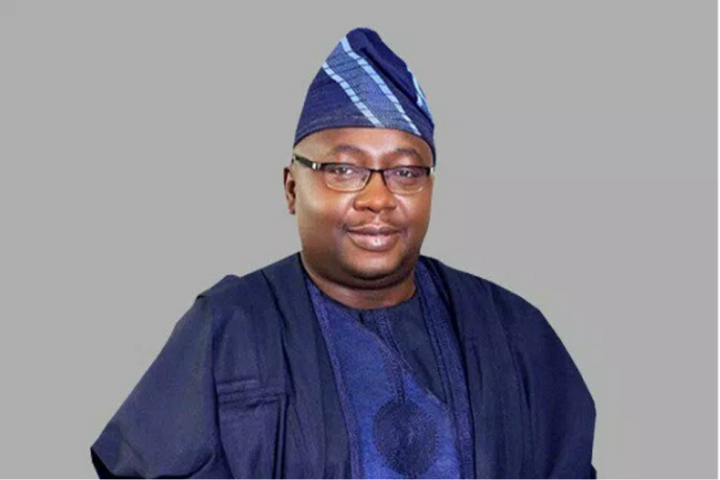The Federal Government has issued a stern warning to electricity distribution companies (DisCos) that have failed to meet operational and financial obligations, stating that it will no longer tolerate inefficiency, indebtedness, or poor service delivery within the power sector. The government said that it is ready to revoke the licenses of non-performing DisCos and replace them with capable investors who can drive stable electricity distribution across the country.
Minister of Power, Chief Adebayo Adelabu, made this known during a stakeholders’ meeting in Abuja, where he lamented the persistent liquidity crisis, poor metering coverage, and mounting debts owed to the Nigerian Bulk Electricity Trading Company (NBET) and the Transmission Company of Nigeria (TCN) by some DisCos. He stated that the government would “no longer condone laxity or mismanagement” that continues to undermine Nigeria’s power reform objectives.

Adelabu noted that despite several interventions, including financial support from the Central Bank of Nigeria (CBN) and partial risk guarantees, many DisCos remain heavily indebted and unable to meet their remittance obligations to the electricity market. “We have reached a point where decisive action must be taken. Any distribution company that is too weak or indebted to sustain operations will be replaced by competent investors who can deliver reliable power to Nigerians,” the minister declared.
According to him, the federal government’s priority is to ensure sustainable power supply and an efficient electricity market structure that benefits consumers, investors, and the economy at large. He added that while government prefers collaboration to confrontation, consistent underperformance and disregard for contractual obligations will attract firm regulatory measures going forward.
Adelabu revealed that the Ministry of Power, in collaboration with the Nigerian Electricity Regulatory Commission (NERC) and the Bureau of Public Enterprises (BPE), has commenced a comprehensive review of the performance of all eleven DisCos. The evaluation will consider technical efficiency, financial liquidity, and customer service performance to determine those fit to retain their licenses.
“The power sector reform cannot succeed when key operators fail to deliver. We are reviewing every DisCo’s operational capacity, remittance track record, and consumer engagement framework. The days of hiding inefficiency behind excuses are over,” Adelabu stressed.
He lamented that the liquidity shortfall in the electricity value chain has continued to stifle investment and worsen service delivery. Currently, DisCos owe over ₦2 trillion in unpaid invoices to NBET and other market participants, a debt profile that threatens the sustainability of the entire sector.
The minister disclosed that the federal government is working with development partners and private financiers to improve metering, distribution infrastructure, and grid stability. However, he insisted that such support must go hand in hand with accountability and discipline within the DisCos.
“Government is committed to providing the necessary policy and financial framework to grow the power sector, but operators must live up to their obligations. We cannot continue to subsidise inefficiency,” Adelabu said.
He also revealed plans to restructure ownership and management of certain DisCos where necessary. According to him, “We are not afraid to take tough decisions. If a DisCo cannot meet its service and financial commitments, it will give way for investors who can.”
Reacting to the minister’s warning, the Nigerian Electricity Regulatory Commission (NERC) affirmed its readiness to enforce regulatory measures against defaulters. A senior NERC official noted that the commission has the power to suspend or revoke operating licenses of DisCos that consistently breach market rules or fail to deliver power to their franchise areas.
Energy sector experts have described the government’s position as a necessary step to address long-standing inefficiencies in the electricity distribution segment. They noted that several DisCos have struggled with liquidity, poor governance, and lack of investment in infrastructure since privatisation in 2013.
Dr. Ifeanyi Odili, an energy economist, said, “The federal government’s stance is long overdue. Some of the DisCos are technically insolvent and incapable of meeting service expectations. The government needs to ensure that only serious investors remain in the system.”
He further advised that any replacement process must be transparent and guided by performance-based criteria to attract credible and financially strong operators.
Meanwhile, Adelabu reiterated that the government remains committed to achieving universal access to electricity by 2030 and improving supply reliability through new grid and off-grid initiatives. He also called for closer collaboration among DisCos, generation companies (GenCos), and transmission operators to ensure a unified approach to sector challenges.
“We are building a future where Nigerians can rely on steady power. That vision will not be derailed by weak operators or mismanagement. We will sanitise the system and ensure Nigerians get value for every naira spent on electricity,” the minister concluded.
With this latest warning, it is clear that the federal government intends to enforce stricter discipline and accountability in the power sector, marking a decisive shift toward reform, efficiency, and sustainability in Nigeria’s electricity distribution landscape.
Support InfoStride News' Credible Journalism: Only credible journalism can guarantee a fair, accountable and transparent society, including democracy and government. It involves a lot of efforts and money. We need your support. Click here to Donate
